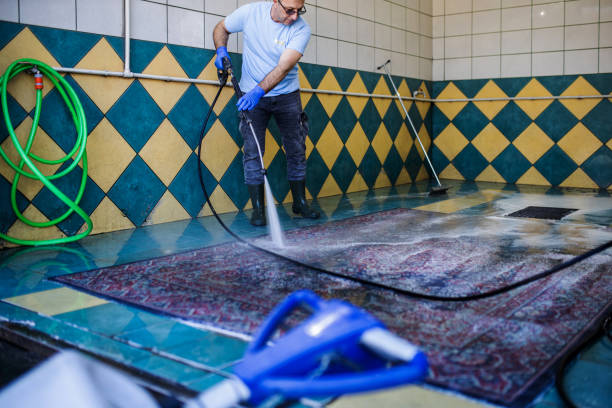Budgeting for Your Exhibition Booth in Hamburg: What You Need to Know

Exhibiting at trade shows can be a fantastic way to gain exposure for your business, connect with potential customers, and network with industry peers. If you plan to set up an exhibition booth in Hamburg, one of Europe’s leading trade show destinations, budgeting wisely is crucial. Hamburg, with its world-class exhibition centers like Messe Hamburg, attracts thousands of businesses and visitors from all around the globe, making it a competitive environment to stand out. Whether you’re a startup or an established business, creating an effective budget will not only ensure you maximize your investment but also prevent any unforeseen financial strains. Partnering with the right exhibition booth builder in Hamburg can also play a pivotal role in optimizing costs and ensuring you make a memorable impact.
Here’s a detailed guide on how to budget for your exhibition booth in Hamburg, breaking down the key costs you need to consider:
1. Booth Space Rental Costs
The most significant portion of your budget will likely be allocated to the cost of renting space at the exhibition venue. The price of booth space varies depending on the size, location, and type of exhibition. For high-profile events at Messe Hamburg, prime locations such as corners or areas near entrances typically command higher rates. However, opting for a less central spot could save you money without compromising visibility if you plan your booth design creatively.
Exhibition organizers usually offer different booth sizes, ranging from small 9m² spaces to larger 50m² and beyond. Costs can range anywhere from €150 to €500 per square meter, depending on the exhibition and demand. Early bookings can sometimes offer discounts, so planning ahead can lead to savings. Additionally, some exhibitions may charge extra fees for utilities like electricity, Wi-Fi, or water connections.
Tips:
Early Bird Discounts: Register and secure your booth early to take advantage of discounted rates.
Evaluate Space Needs: Determine how much space you actually need and avoid paying for unnecessary square footage.
Consider Booth Location: While prime spots are expensive, a well-designed booth in a less central location can still draw a crowd.
2. Booth Design and Construction
Once you have secured your exhibition space, the next significant cost will be the design and construction of your booth. A well-designed booth can help you attract visitors and leave a lasting impression. Depending on your objectives, you may choose from a standard shell scheme booth (a ready-made structure provided by the organizer) or a custom-designed booth built specifically for your brand.
Shell Scheme Booths: These are basic setups provided by the exhibition organizers and are typically cheaper. They come with walls, flooring, lighting, and often signage. However, their simplicity may limit your branding efforts. Costs usually range between €500 and €2,000 depending on size and customization options.
Custom Booths: If you want to stand out, investing in a custom booth that reflects your brand’s personality and message is essential. Custom booths can be more expensive, ranging from €5,000 to €50,000 depending on the design, materials, and features. Many exhibitors opt to work with local Hamburg-based companies to save on transportation and logistics costs.
Tips:
Local Partners: Hire local booth designers and builders to avoid high transportation costs.
Modular Booths: Consider modular booth designs that you can reuse at future exhibitions, saving on future construction costs.
3. Booth Accessories and Furniture
In addition to the booth structure itself, you’ll need to budget for furnishings, lighting, signage, and other accessories that enhance your display. Furniture such as chairs, tables, display counters, shelves, and even digital displays or projectors may be necessary, depending on your setup. If not carefully planned, these expenses can quickly mount up.
Here are some estimated costs for common booth accessories:
Basic Furniture Rental: €50–€300 per item.
Digital Screens or Interactive Displays: €500–€2,000 for rentals.
Decor and Branding: Custom signage, banners, and printed materials can range from €300 to €5,000, depending on complexity.
Additionally, branding elements such as banners, backdrops, and wall displays will help reinforce your messaging and attract visitors. Ensure that your signage is professional and conveys your key messages clearly.
Tips:
Package Deals: Some suppliers offer package deals for booth accessories and furniture, which can save money.
Rent Over Buy: Renting equipment and furniture can be more cost-effective than buying, especially if you’re only attending one show in Hamburg.
4. Shipping and Logistics
If you’re bringing your own materials or a custom-built booth from another country or city, logistics will be a key part of your budgeting. Shipping can be costly, especially for international exhibitors. The price will depend on the size and weight of the items, the distance they need to be shipped, and the type of shipping (air, sea, or land).
In Hamburg, it’s wise to work with a logistics company familiar with exhibition venues like Messe Hamburg. They’ll understand the delivery timelines, customs procedures (for international exhibitors), and onsite handling rules. Be sure to also factor in storage costs, especially if you need to store items before or after the exhibition.
Tips:
Local Shipping: Use local suppliers for your booth materials to minimize long-distance shipping costs.
Plan for Contingencies: Add 10-15% to your logistics budget to account for delays or additional handling fees.
5. Staffing and Accommodations
Exhibitions typically require several staff members to man your booth, engage with visitors, and represent your company. You’ll need to budget for employee travel, accommodations, meals, and potentially, transportation within Hamburg.
Travel Costs: Airfare or train tickets to Hamburg will vary depending on where your team is traveling from. Flights from within Europe typically range from €100 to €400 round-trip, while international flights can cost €500 and upwards.
Accommodations: Hamburg offers a wide range of hotels, from budget to luxury. Budget-friendly hotels or Airbnb rentals near Messe Hamburg can cost €50 to €150 per night, while mid-range to luxury hotels can go from €150 to €400 per night. Booking early or during non-peak seasons can help you find better rates.
Per Diem Expenses: Factor in daily expenses for meals, transportation, and other needs. A reasonable per diem allowance in Hamburg could be around €50 to €100 per day, depending on your employees’ needs.
Tips:
Local Staffing: Consider hiring temporary staff from Hamburg to cut down on travel and accommodation costs for your team.
Group Bookings: Book accommodation and travel in bulk to secure group discounts.
6. Marketing and Promotional Materials
Promoting your presence at the exhibition is essential to attracting foot traffic to your booth. This includes both pre-show marketing efforts (like email campaigns, social media promotions, or advertisements) and materials distributed at the event itself, such as brochures, business cards, and promotional giveaways.
Digital Marketing: Pre-event digital marketing efforts like targeted email campaigns or social media ads can cost anywhere from €500 to €3,000, depending on the scale of your campaign.
Printed Materials: Flyers, brochures, and catalogs can cost €200 to €2,000 based on quantity and quality. Business cards typically cost €50 to €200 for a few hundred.
Promotional Items: Giveaways like branded pens, tote bags, or tech gadgets can range from €1 to €10 per item. Plan for at least 500 to 1,000 giveaways, depending on the expected attendance.
Tips:
Bundle Print Jobs: Bundle all printed marketing materials to benefit from bulk discounts.
Digital Content: Maximize free digital marketing platforms, like your website or social media, to engage your audience before and during the show.
7. Miscellaneous and Contingency Funds
Unexpected expenses can arise at any event, so it’s wise to allocate a portion of your budget as a contingency fund. This might cover additional shipping fees, last-minute booth repairs, or emergency purchases. A good rule of thumb is to set aside 10-15% of your total budget for unforeseen costs.
Tips:
Emergency Fund: Always overestimate rather than underestimate when budgeting for exhibitions.
Conclusion
Exhibiting at a trade show in Hamburg presents a fantastic opportunity to grow your business, but it comes with a range of costs that require careful planning. From booth rental to staffing, shipping, and marketing, having a detailed budget ensures that your investment yields the best possible returns. By evaluating your options, planning early, and making smart choices, you can manage your expenses effectively while making a big impact at the event.
The key to success is creating a balance between cost control and impactful presentation. Hamburg’s exhibitions attract a high-caliber audience, so while cutting costs is important, ensuring that your booth stands out and reflects your brand’s identity is equally vital. By following this guide and keeping a clear financial plan, you’ll be in a strong position to make the most of your exhibition experience in Hamburg.










